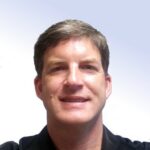Bartlett Cleland, director of the Center for Technology Freedom at the Institute for Policy Innovation in Lewisville, Texas, says the Universal Service Fund is broken and needs an update for the digital age.
Cleland says modern technology—the proliferation of broadband Internet service over cable, fiber, and even old copper phone lines—has outpaced the utility of the USF, especially considering the proliferation of voice over Internet protocol, which doesn’t even require a traditional phone line to exchange voice or even video communication. Cleland has proposed some reforms.
Transparency Seen as Key
For starters, Cleland says, many Americans don’t even know what the USF is, let alone what it’s used for. That has to change.
“[We need to] maintain accountability by ensuring consumers can see universal service charges on their bills,” Cleland said. “Some states have impeded this process by making it harder for carriers to offer line items on the bills.”
Colorado’s Caps Praised
The USF, Cleland says, has grown flush in recent years but has been misused as “a rich program in search of funds instead of a necessary program serving essential public needs.”
“Colorado’s fund grew from $35 million to over $60 million within a few years, enraging consumers,” he said. “This ended when Colorado legislators capped the fund at $60 million.”
Cleland says carriers serving rural areas should have to compete for USF support, and regulators should auction to the lowest bidder the right to be the eligible carrier in a given region.
Targeting the Truly Needy
“In Washington state, all the carriers dedicate their support to high-cost areas within the state, while low-cost areas receive no support,” Cleland said. He says the USF should be “means-tested” toward customers, not telecommunications companies.
“While unpopular with small phone companies, this approach is fairest for consumers now paying to subsidize service to other consumers who are no worse off than they are,” Cleland said.
Loren Heal ([email protected]) writes from Neoga, Illinois.




